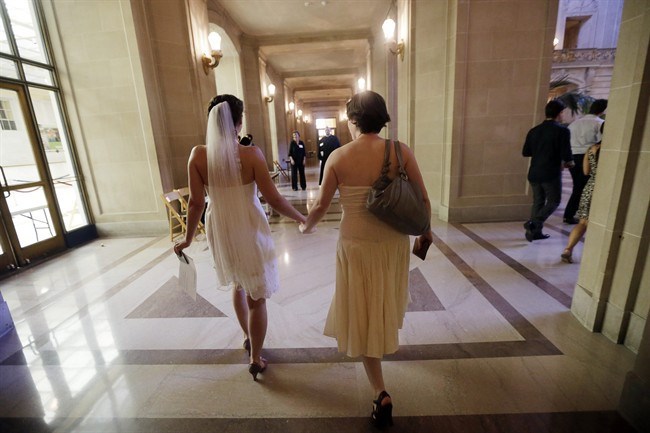Fourteen years after Canada legalized full marriage rights for same-sex couples, a new poll has found one in four Canadians still oppose the measure.
One in 10 respondents to the Research Co. poll opposed any legal recognition of same-sex couples, while 15 per cent said they should be allowed to have civil unions but not marry.
Two-thirds of respondents said they fully support the right to same-sex marriage, while 11 per cent were undecided.
The poll found a cultural divide among Canadians over same-sex marriage, with 71 per cent of respondents of European descent backing the right versus 44 per cent support from respondents of East Asian backgrounds and 42 per cent support from respondents of South Asian descent.
The poll also touched on the sexual orientation and gender identity, or SOGI, programs used in some Canadian schools that seek to raise awareness of and reduce discrimination against students with different sexual orientations and gender identities.
The programs have faced intense opposition from some Christian and conservative groups.
The poll found that just over six in 10 Canadians support the use of “SOGI-inclusive education” in their province, while one in five were opposed and slightly fewer respondents were unsure.
The programs earned the strongest support from women (67 per cent), Canadians aged 18 to 34 (64 per cent) and people who voted Liberal in the 2015 election (70 per cent).
On the question of whether schools should be forced to tell parents if their children join a gay-straight alliance, the poll found a marked split, with 45 per cent saying they “definitely” or “probably” should, compared to 37 per cent, who said they shouldn’t.
The online poll was conducted from July 15 to 17 among 1,000 adult Canadians and has been statistically weighted for age, gender and region. It has a margin of error of +/- 3.1 per cent, 19 times out of 20.
- Global News
